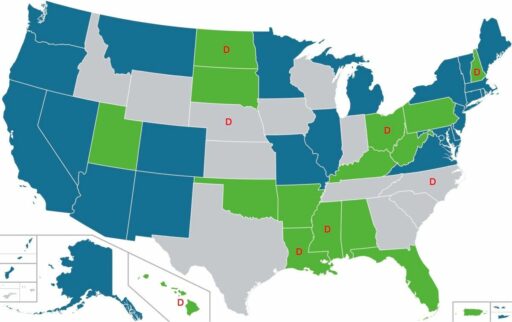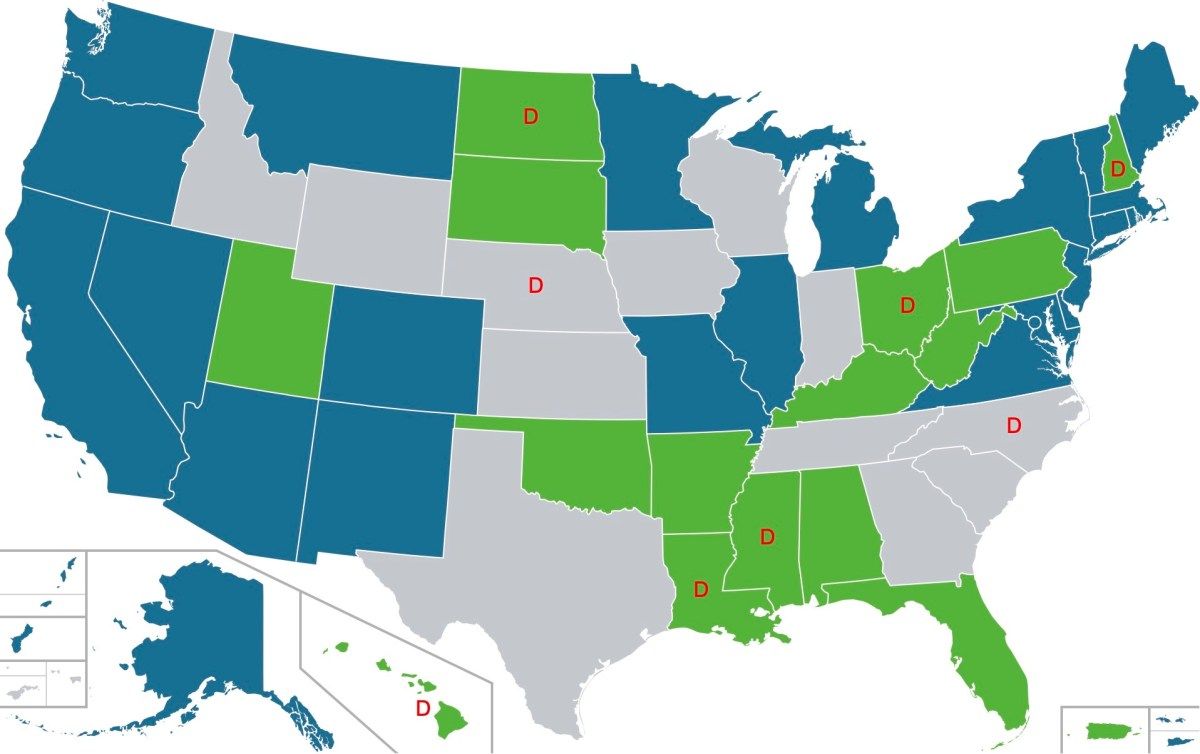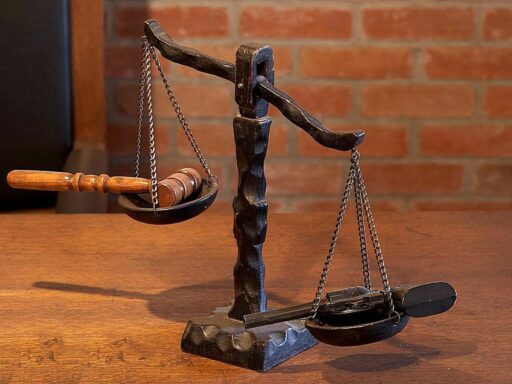The landscape of marijuana legalization in the United States is constantly evolving, with various states adopting different levels of legality for both medical and recreational use. As of February 2024, the trend towards legalization has seen significant progress, with a patchwork of laws reflecting a shift in public opinion and state-level advocacy. In this article, we provide a comprehensive list of states that have fully legalized marijuana and delve into the complexities of partial legalization, decriminalization, and medical marijuana programs.
Key Takeaways
- As of February 2024, 24 states and the District of Columbia have legalized recreational marijuana use, with Colorado and Washington being the trailblazers since 2012.
- Medical marijuana is legal in 38 states, and 27 states have decriminalized recreational use, reflecting a significant shift in public policy and opinion.
- A total of 74% of Americans live in a state where marijuana is legal for either recreational or medical use, indicating widespread accessibility.
- Despite state-level legalization, marijuana remains illegal at the federal level, creating a complex legal landscape and ongoing debates.
- Advocacy efforts and proposed legislation suggest a continuing trend towards legalization, with public support reaching 88% for legal marijuana in some form.
Overview of Marijuana Legalization in the United States

Current Legal Status Across the Nation
As the United States grapples with the complexities of marijuana legalization, the landscape across the nation is a patchwork of varying laws. Marijuana is legalized for adult use in 38 states, four territories, and the District of Columbia, but remains illegal at the federal level. This dichotomy between state and federal legislation creates a unique legal limbo, where activities permitted in certain states may still be prosecuted under federal law.
In addition to full legalization, there are states where marijuana is illegal but decriminalized, and others where it is illegal but often unenforced, reflecting a trend towards more lenient policies even in states without formal legalization. The legal status for medical use is also diverse, with some states allowing legal consumption for any adult use, while others restrict it to medical use only.
The evolving legal status of marijuana in the U.S. is indicative of a broader shift in public opinion and policy reform. As states continue to navigate their own paths, the federal stance remains a significant hurdle for nationwide consistency.
The following table summarizes the current legal status of marijuana across the United States:
| Legal Status | Number of States |
|---|---|
| Legal for adult use | 38 |
| Decriminalized | 7 |
| Illegal but often unenforced | – |
| Illegal | – |
| Legality unknown | – |
The data underscores a significant movement towards legalization, with the majority of states adopting some form of legal or decriminalized status for marijuana.
Federal Stance vs. State Legislation
While the federal government maintains marijuana as a Schedule I controlled substance, indicating a high potential for abuse and no accepted medical use, individual states have taken varied approaches to marijuana legislation. The dichotomy between federal law and state autonomy has created a complex legal landscape for cannabis in the United States.
- Colorado and Washington were the first states to legalize recreational marijuana, setting a precedent for others to follow.
- States like Virginia and Florida are actively pushing for new legislation to regulate adult-use retail sales or to decriminalize possession.
- Legislative efforts in states such as Wisconsin and Pennsylvania aim to establish comprehensive legal frameworks for both recreational and medical use.
The evolving state-level legislation reflects a growing trend towards the acceptance of marijuana, challenging the federal government’s stance and highlighting the need for a cohesive national policy on cannabis.
Public Opinion and Trends in Legalization
The tide of public opinion has shifted significantly towards the legalization of marijuana. National polls indicate a strong majority in favor of legalizing cannabis, either for recreational or medical use. A Gallup poll highlighted that 70% of Americans are in support of legal weed, and a Pew Research Center survey found that only 10% believe it should be completely illegal.
Recent years have seen a surge in states legalizing marijuana, reflecting this change in public sentiment. As of now, most Americans reside in states where marijuana is legal in some form. This shift is not only a reflection of public opinion but also influences the availability of dispensaries:
Our analysis finds that around three-quarters of all dispensaries in the country are in states that have legalized the recreational use of marijuana.
The legalization movement continues to gain momentum, with a significant portion of the population advocating for accessible cannabis policies. The following table illustrates the current public support for marijuana legalization:
| Support Level | Percentage of Americans |
|---|---|
| Legal for recreational use | 59% |
| Legal for medical use only | 30% |
| Completely illegal | 10% |
With such overwhelming support, the future of marijuana legislation appears to be on a path towards more widespread acceptance and legalization.
States with Full Legalization of Recreational and Medical Marijuana

The Trailblazers: Colorado and Washington
In 2012, Colorado and Washington made history by becoming the first states to legalize the recreational use of marijuana. This pivotal moment marked a significant shift in the national conversation about cannabis and set the stage for other states to follow suit. Colorado’s bold move to legalize recreational cannabis not only sparked a wave of legislative changes across the country but also initiated a new era of economic growth within the state.
Since then, the impact on local economies and the legal landscape has been profound. Dispensaries have become a common sight in these trailblazing states, with a variety of products available to consumers. The success of Colorado and Washington has served as a model for other states considering legalization.
The legalization in Colorado and Washington has demonstrated that a regulated cannabis market can operate successfully and responsibly, paving the way for future legislative changes elsewhere.
As of February 2024, the ripple effect of their decision is evident, with a total of 24 states, plus the District of Columbia, having fully legalized recreational marijuana. This movement towards legalization represents a significant shift in public policy and perception regarding cannabis use.
Recent Additions to the List
The landscape of marijuana legalization is ever-evolving, with new states joining the ranks of those that have fully legalized both recreational and medical marijuana use. New York and Virginia are among the latest to transition from medical-only to fully embracing legalization, setting a precedent for comprehensive reform.
Following the trailblazing steps of Colorado and Washington, these states have implemented regulatory frameworks aimed at controlling the distribution and sale of cannabis, while also addressing social justice concerns related to past marijuana convictions. The impact of these changes is significant, leading to a surge in licensed dispensaries and a broader acceptance of marijuana use in mainstream culture.
The momentum for legalization continues to build as more states observe the economic and social benefits that come with a regulated marijuana market.
Impact on Dispensary Proliferation
The advent of full marijuana legalization in several states has led to a significant increase in the number of dispensaries. 79% of Americans now reside in counties with at least one cannabis dispensary, indicating widespread access to legal cannabis products.
The distribution of dispensaries is not uniform across the nation, with certain areas exhibiting higher concentrations. This is particularly evident in states with more permissive laws, where dispensaries often cluster near borders with less permissive neighboring states.
While concerns were initially raised about dispensaries predominantly opening in low-income neighborhoods, the data shows that median incomes are slightly lower in areas with higher dispensary density. However, this varies by state and does not represent a universal trend.
Here is a snapshot of dispensary distribution in key states:
| State | Number of Dispensaries |
|---|---|
| California | 3,659 |
| Colorado | Data Needed |
| Michigan | Data Needed |
| Oklahoma | Data Needed |
The presence of nearly 15,000 cannabis dispensaries across the United States underscores the impact of legalization on the cannabis industry’s retail footprint, particularly in the West Coast and Northeast regions, as well as in states like Michigan, Oklahoma, and Colorado.
Medical Marijuana Programs and Decriminalization Efforts

States with Comprehensive Medical Cannabis Programs
As the landscape of marijuana legalization evolves, a growing number of states have established comprehensive medical cannabis programs. Thirty-eight states, along with territories such as D.C., Puerto Rico, Guam, the Northern Mariana Islands, and the U.S. Virgin Islands, now have effective medical cannabis laws. This marks a significant shift towards recognizing the medicinal benefits of cannabis and providing legal access to those in need.
In the current legislative session, several states are poised to join this list. For instance, Georgia’s HB 337, which carried over from 2023, aims to establish a full medical program. Similarly, bills in Indiana (SB 0126 and HB 1146), Kansas (SB135), Nebraska (LB 588), and North Carolina (S3) are all working their way through the legislative process, with North Carolina’s Senate having already passed S3 on second reading.
Despite these advancements, there are still states lagging behind in cannabis reform. South Carolina, for example, remains one of the few without a comprehensive medical cannabis program, although recent legislative efforts indicate potential progress.
For those residing in states without such programs, advocacy remains crucial. Contacting state legislators to express support for medical cannabis can be a pivotal step in catalyzing change. The Marijuana News website, with its extensive archives from February 2024, serves as a valuable resource for staying informed and taking action.
Decriminalization: Reducing Penalties for Possession
In the evolving landscape of marijuana laws, decriminalization efforts are gaining momentum. These initiatives aim to remove the threat of jail time for simple possession, often replacing it with a civil fine. This shift reflects a growing consensus that the criminal penalties previously associated with marijuana possession are disproportionate and counterproductive.
Decriminalization not only alters the legal repercussions but also signifies a broader change in societal attitudes towards cannabis use.
Several states have introduced bills to decriminalize the possession of small amounts of marijuana. For instance, Tennessee’s HB 309 proposed to reduce penalties to a civil fine or community service, although it was withdrawn for the year. Similarly, Wisconsin’s AB 861 seeks to lower fines and jail time for possession.
Here’s a quick overview of recent legislative efforts:
- Georgia: SB42 aims to remove criminal penalties for under an ounce and introduce a civil fine up to $200.
- Florida: S0094 proposes to replace criminal penalties with a civil fine for possession of 20 grams or less.
- South Carolina: H 3561 and H 3803 suggest reducing penalties to a fine-only offense for possession of up to an ounce.
Pending Legislation for Medical and Decriminalization
As the landscape of marijuana policy continues to evolve, several states are actively considering legislation that could transform their approach to cannabis. Bills to remove possible jail time for simple possession, often replacing it with a fine, are indicative of a shift towards decriminalization. Currently, there are six states with such decriminalization bills in motion.
In addition to decriminalization efforts, seven states are working on bills to create comprehensive medical cannabis programs. These initiatives demonstrate a growing recognition of the medicinal value of cannabis and a push towards providing legal access for patients.
The legislative process is dynamic, with bills continuously being proposed, debated, and revised. Staying informed about these changes is crucial for understanding the future of cannabis policy in the United States.
For a detailed look at the specific bills and their progress, resources such as the Marijuana News website offer updates and insights, although some may be as nascent as a single post welcoming users without further content.
The Complex Landscape of Partial Legalization and Restrictions

CBD-Only Laws and Limited THC Access
In a landscape where the legal status of marijuana varies widely, a distinct category of states permits only non-psychoactive cannabis products. These states allow the use of CBD oil, which contains minimal THC, the compound responsible for marijuana’s intoxicating effects. This limited legalization reflects a cautious approach to cannabis, focusing on therapeutic benefits without enabling recreational use.
The limited THC or CBD-only laws represent a middle ground in cannabis legislation, aiming to provide relief for certain medical conditions while maintaining strict control over marijuana’s psychoactive elements.
While these states do not offer the full spectrum of marijuana legalization, they have established a legal framework for the use of cannabis products with low THC content. The following is a list of states with such restrictions:
- State A
- State B
- State C
- State D
- State E
This approach has implications for the availability of dispensaries, with only a small percentage operating in these regions. Despite the restrictions, a significant number of residents in these states have access to at least one dispensary within their county.
States with No Path to Recreational Use
While the majority of states have embraced varying degrees of marijuana legalization, a handful remain steadfast in their prohibition. Idaho, Kansas, South Carolina, and Wyoming fully outlaw both medical and recreational marijuana, standing as the last bastions of complete prohibition in the United States. These states have not passed any legislation indicating a move towards legalization, and they do not provide any legal access to THC-containing cannabis products.
In contrast to the progressive trends seen nationwide, these states maintain strict laws against marijuana, with no current initiatives suggesting a change in the near future.
The landscape of legalization is complex, with some states like Pennsylvania having medical marijuana programs but stopping short of full recreational legalization. Neighboring states’ policies often contrast sharply, highlighting a patchwork of legislation across the country. The following list outlines the states with no legal access to THC-rich cannabis:
- Idaho
- Kansas
- South Carolina
- Wyoming
Additionally, there are states with limited access to low-THC products, such as CBD oil, but these too do not offer a path to recreational use. The federal government’s stance remains incongruent with the growing acceptance at the state level, further complicating the issue.
Remaining States Fully Outlawing Marijuana
Despite the widespread movement towards legalization, a handful of states maintain a stringent stance against marijuana. Idaho, Kansas, South Carolina, and Wyoming stand as the last bastions fully outlawing both medical and recreational use of marijuana. These states have not budged on their prohibition laws, even as their neighbors adopt more progressive policies.
In contrast to the majority of the United States, these states uphold a zero-tolerance policy towards marijuana, reflecting a stark divide in national attitudes towards cannabis.
The federal government’s classification of marijuana remains at odds with many state laws. Any marijuana product with 0.3% or more THC is considered illegal at the federal level, complicating the landscape for states with legal cannabis industries. Financial institutions face challenges when dealing with marijuana businesses due to this federal-state discrepancy.
The following is a list of states with limited cannabis access, focusing on products with minimal or no THC content:
- Alabama
- Georgia
- Indiana
- Iowa
- Kentucky
- Mississippi
- North Carolina
- South Carolina
- Tennessee
- Texas
- Virginia
- Wyoming
These states permit only CBD oil or similar low-THC products, often for specific medical conditions. The reluctance to embrace broader legalization reflects a cautious approach to marijuana policy, with potential implications for state revenue and criminal justice.
Future of Marijuana Legislation and Advocacy

Proposed Bills and State-Level Changes
As the landscape of marijuana legislation continues to evolve, numerous states are actively considering changes to their cannabis policies. Six states are currently examining decriminalization bills aimed at removing possible jail time for simple possession, often replacing it with a fine. Meanwhile, 16 states have proposed bills to fully legalize cannabis for adult use.
In states like Pennsylvania, legislative efforts such as SB 846, HB 1080, and HB 1082 are in motion to legalize and regulate sales for adults 21 and older. South Carolina’s S. 211, which carried over from 2023, seeks a similar outcome. Tennessee’s HB0085 and SB0168, although not advancing before adjournment, also aim to establish a regulatory framework for adult cannabis use and have carried over into the current session. Wisconsin is considering AB 506 and SB 486, which would not only legalize cannabis for adults but also create medical cannabis programs.
The momentum for reform is palpable as more states join the movement to alter their cannabis laws, reflecting a shift in public opinion and a growing recognition of the potential benefits of legalization.
Advocacy Efforts and Public Support
The push for marijuana legalization is bolstered by a diverse array of advocacy groups and a growing public sentiment in favor of reform. Public support for legalization has surged, as evidenced by the increasing number of states adopting more liberal cannabis policies.
Advocacy efforts are not just about legalizing marijuana; they also encompass fighting for the rights of consumers, such as ending workplace discrimination against cannabis users.
Organizations like NORML and MPP are at the forefront of these efforts, providing resources, education, and legal support to advance the cause. Their activities range from lobbying legislators to grassroots campaigns aimed at raising awareness and changing public opinion.
- Spread the Word: Advocates encourage open dialogue about the benefits of cannabis.
- Register to Vote: Voter registration drives are crucial to influencing cannabis policy.
- Surveys: Gathering public opinion helps tailor advocacy strategies.
- Fundraising: Initiatives like the Cannabis Justice Fund are essential for supporting policy reform and social justice.
The narrative around cannabis is changing, with many Americans recognizing its medical benefits. This shift in perception is a key driver behind the call to deschedule cannabis and reflects a broader trend towards acceptance.
Predictions for Nationwide Legalization
As the landscape of marijuana legislation continues to evolve, predictions for nationwide legalization become a topic of increasing interest. With a majority of voters supporting the legalization in all states, the pressure on federal lawmakers is mounting. The recent legalization in Ohio marks a significant milestone, becoming the 24th state to fully legalize marijuana.
- Florida and Pennsylvania are anticipated to be the next states to embrace full legalization, reflecting a broader national trend.
The trajectory of marijuana reform suggests a not-so-distant future where prohibition is a relic of the past.
Public opinion polls consistently show a high level of support for legal weed, with a Gallup poll indicating 70% approval. This overwhelming support, coupled with the economic incentives of tax revenue and reduced law enforcement costs, paints a promising picture for advocates of legalization.
Conclusion
As we’ve explored throughout this article, the landscape of marijuana legalization in the United States is complex and ever-evolving. With 24 states and the District of Columbia having legalized recreational marijuana, and an additional 14 states permitting medical use only, the majority of Americans now live in states with some form of legal access to cannabis. Despite the federal government’s stance on marijuana, public opinion is overwhelmingly in favor of legalization, with 88% of U.S. adults supporting legal marijuana in some capacity. The movement towards legalization continues to grow, with legislative efforts underway in several states to either decriminalize or fully legalize cannabis. As the nation’s attitudes and laws progress, it’s clear that the conversation around marijuana is shifting, reflecting a broader acceptance and recognition of its potential benefits.
Frequently Asked Questions
Which states have fully legalized marijuana for recreational use as of 2024?
As of February 2024, there are 24 states, plus the District of Columbia, that have legalized the recreational use of marijuana.
How many states have legalized marijuana for medical use?
Fourteen states have legalized marijuana for medical use only, while others may have comprehensive medical cannabis programs or CBD-only laws.
What percentage of Americans live in a state where recreational marijuana is legal?
54% of Americans live in a state where the recreational use of marijuana is legal.
How many states still fully outlaw marijuana?
Four states fully outlaw marijuana for any use: Idaho, Kansas, South Carolina, and Wyoming.
What is the public opinion on marijuana legalization in the United States?
A Pew Research Center survey from October 2022 indicated that 88% of U.S. adults believe marijuana should be legal, either for recreational and medical use (59%) or for medical use only (30%).
Are there any states considering new marijuana legalization legislation?
Yes, there are states where bills have been proposed to legalize cannabis for adults, decriminalize cannabis, or legalize medical cannabis. Details of these proposals can be found on state webpages and through legislative tracking services.





